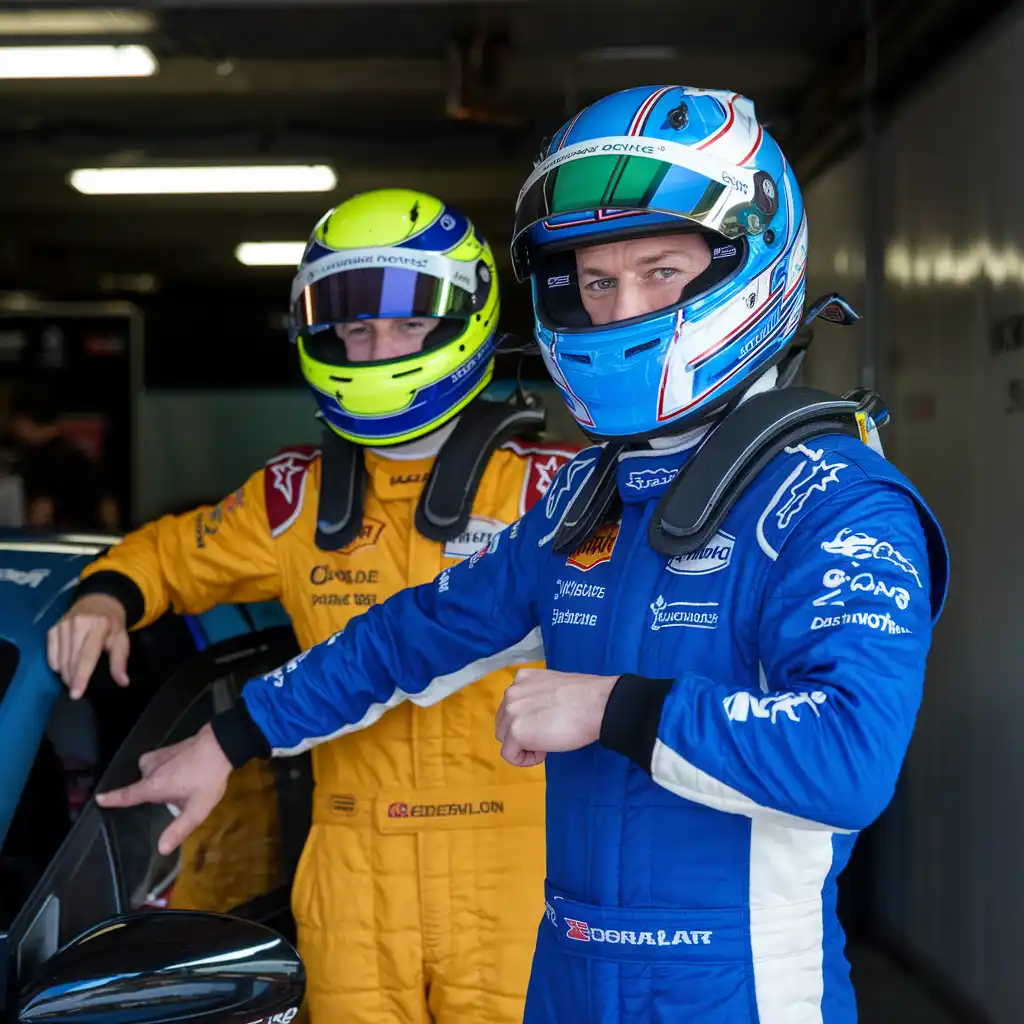
Motorsport has always been a world where talent, precision, and endurance decide about success. But behind every successful driver, engineer, or strategist, there is a network of support – often invisible, but essential. At the heart of this support lies mentoring: a deeply human process of guiding, sharing experiences, and empowering others to grow. In an industry that changes as fast as the cars on the track, mentoring is no longer just an added value – it becomes a necessity.
Who can be a mentor in motorsport?
In motorsport, a mentor can take many forms. Drivers, engineers, team leaders, data specialists, as well as former participants of motorsport – all of them can play the role of a mentor. They support with their professional experience: help understand how the world of motorsport works, how to build resilience under pressure, or how to navigate complex paths of sports and technical careers.
Some mentors operate formally – as part of academies, development programs, or under the supervision of federations. Others become mentors organically – relationships are born in the garage, in the simulator, or during travels between races. Informal mentoring is equally valuable – it’s based on trust, shared passions, and real human connection.
Professional mentoring – who supports the development of competences in motorsport?
A mentor in motorsport is not just a teacher. It is someone who previously paved the way, now stands next to you and says: “It’s possible – come, I’ll show you how.” In the dynamic and technically complex world of motorsport, professional mentoring is of exceptional importance – it can decide whether talent will blossom or fade.
- Competitors teach not only driving, but also mental strategy, racing instinct, and the ability to communicate with the team.
- Engineers and technicians share their knowledge of telemetry systems, aerodynamics, and new technologies.
- Team leaders help young people navigate the world of career, contracts, and strategic decisions.
- Former participants in motorsport – often underestimated – bring experience from the past that can be invaluable for young debutants.
Professional mentoring can take the form of formal programs – such as F1 academies, Extreme E, Girls on Track, Mission 44 – or informal relationships that arise in paddocks, garages, engineering offices. Regardless of the form, three pillars are key: trust, clearly defined goals, and mutual learning. Good mentoring is not a lecture – it is a dialogue between two people who want to develop together.
Mentoring supporting diversity – when presence changes everything
Although professional mentoring gives skills, diversity mentoring gives strength to be yourself in a place that was not always ready for everyone.
Motorsport still lacks mentors for women, mentors from different cultural backgrounds, or neurodivergent people who have gone through the system and can now say: “I understand what you feel – I went through the same thing.” This is a gap that needs to be consciously filled – not only to increase numbers, but to create a safe environment for development.
Importantly, mentors supporting diversity do not have to come from motorsport. Quite the opposite – they are often people from outside who have deep life experience, work in education, activities for neurodivergent people, LGBTQ+ people, women in science or youth from marginalized groups. They do not need a degree in psychology – they need empathy, awareness and a willingness to accompany another person on their journey.
Such mentoring:
- breaks stereotypes and helps young people imagine themselves on the track – regardless of gender, origin, identity or neurotype,
- creates role models that are missing today – because nothing gives as much courage as seeing someone “like me” who has achieved success,
- counters exclusion, increasing the chance that young talent will not give up due to a sense of loneliness or misunderstanding,
- builds bridges between the world of technology and the world of social values – so that motorsport is not only faster, but also smarter and more human.
It is this type of mentoring that should be the foundation of ethical and inclusive programs of the future. Because sometimes the greatest value is not technical advice, but the presence of someone who understands who you are – and allows you to truly believe that you have the right to be here.
Mentoring and sustainable talent development
In discussions about sustainable motorsport, we often talk about green fuels or circular paddocks. But sustainable development is also about people.
Mentoring plays a vital role in creating a sustainable ecosystem for talent. It helps retain promising individuals in the sport – particularly women and those from underrepresented backgrounds – who might otherwise leave due to isolation or lack of support. It provides a safety net: emotional support in challenging moments, a sense of belonging, and the strength to persevere.
In the long term, mentoring helps develop mental resilience. It allows individuals to manage stress, maintain motivation, and navigate setbacks – which is essential in such a high-pressure environment. Moreover, it encourages continuity: from grassroots participation to leadership roles.
Mentoring is also an engine for change. When integrated with STEM education and green innovation, it becomes a tool for building future-ready professionals. A mentor passionate about sustainability can influence mentees to explore careers in sustainable engineering, eco-design, energy efficiency, or responsible materials management in motorsport. In this way, mentoring shapes not only careers but also values – promoting a motorsport that is competitive and conscious.
Towards the future – what’s next?

Mentoring should become more structured and accessible. This is a task for teams, federations, but also universities and tech partners. Digital platforms have great potential – mentoring doesn’t have to be local. A young girl from Latin America or a neurodivergent engineer from Southeast Asia can find a mentor who understands their world.
Artificial intelligence can support mentors by helping to develop personalized educational materials, identify learning styles, and analyze individual development needs. Online platforms can offer flexible, borderless access to mentoring relationships. Moreover, digital mentoring can enable global knowledge exchange and multicultural dialogue.
International collaboration between racing federations, academic institutions, non-profits, and industry players can lead to the creation of ethical mentoring standards, certification programs, and global mentoring networks.
If we want motorsport to remain innovative and inclusive, mentoring must be treated not as an afterthought – but as a strategic pillar.
Conclusion
Mentoring is not about titles or trophies. It’s about presence. About showing up when someone needs guidance, confidence, or simply a sense of not being alone.
You don’t need to be a world champion to make a difference. You can be a retired mechanic, a data analyst, a team coordinator, or someone with lived experience of overcoming barriers. What matters is the willingness to share, to support, and to believe in someone’s potential before the world does.
Mentoring is the quiet force that drives real change. It’s the conversation after a tough race. The encouragement before a debut. The voice that says: “You belong here.”
By mentoring others, we don’t just shape careers — we shape a sport that reflects the world we want to live in: diverse, compassionate, resilient, and forward-thinking.
So be the one who listens. Be the one who remembers what it’s like to start. Be the one who makes space.
Because in motorsport – as in life – true legacy is not only about winning, but about helping others cross the finish line too.


